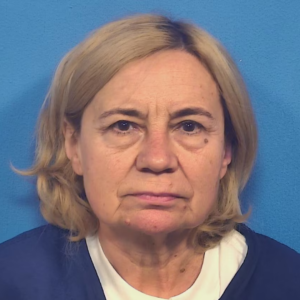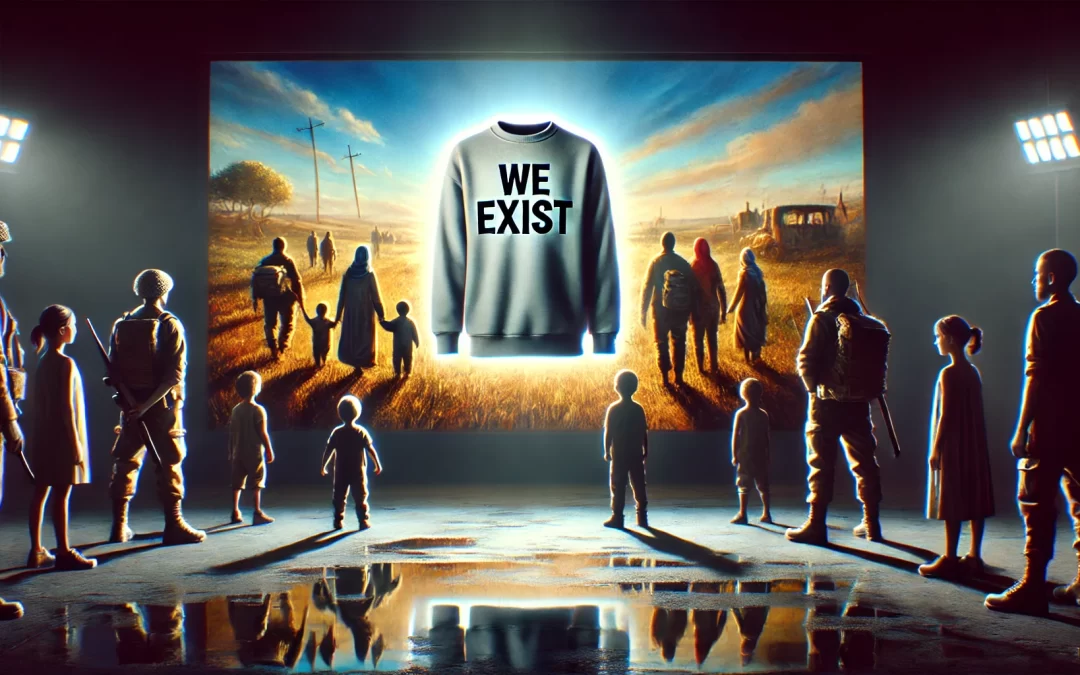An Open Letter from Editor-in-Chief, Aalia Lanius to Alexandra Szustakiewicz
Let me introduce myself. I am a human being—a mother, grandmother, and a soul with half a century of life’s wisdom. With my years has come the unshakable belief in treating others as I wish to be treated. But here I am, struggling to fathom the hatred you unleashed upon a couple simply because they bore a symbol of their identity—a sweatshirt expressing solidarity with Palestine.

Alexandra Szustakiewicz is charged with two counts of hate crime. DuPage County State’s Attorney
I first saw the video online this past weekend. Watching in shock as you, Alexandra Szustakiewicz, a 64-year-old woman, at a Panera in Illinois, approached a man and his pregnant wife, shouting expletives and attempting to spill hot coffee on them. Your rage, directed at nothing more than a piece of clothing, escalated to physical aggression as others in the café stood by, indifferent. The man, Waseem Zahran, spoke of how he couldn’t even take his wife out for lunch simply because of their Palestinian heritage. Your hate-filled attack, filmed by his wife, culminated in charges against you for a hate crime and for that I am glad.
Let me ask you this: have you truly paused to consider the humanity of those you target with such rage? Have you thought about the children, the mothers, the fathers, and the grandparents who wake up every day to bombs, displacement, and death? Since October 2023, it is estimated that over 330,000 people in Palestine have been killed, 70% of them women and children. Across the border, in Lebanon, over 3,000 lives have also been lost—and these numbers are growing. These are not abstract figures. Each number is a person: someone who laughed, dreamed, and loved. Someone whose story ended too soon.
What offends you so deeply about a sweatshirt, about a symbol of solidarity? Is it the idea that someone dares to grieve for these lives? Or is it the audacity of a people to say, “We resist,” in defiance of a narrative that seeks to erase them?
If you knew even a fragment of history, you’d understand that Palestinians, like all Indigenous people of the Levant, are among the most culturally rich and enduring communities’ humanity has known. Their lineage stretches back to the Canaanites of 10,000 years ago.
But instead of respect, you chose hostility. I wonder, what makes someone feel so entitled to police another’s existence? Does the rejection of colonialism threaten you? History has taught us, time and again, that the real crime lies not in resistance but in the arrogance of those who impose their superiority upon others. That is what made Nazi ideology so reprehensible. It wasn’t just the atrocities committed but the belief system that justified them—entitlement and supremacy.
Perhaps you’ve convinced yourself that this is about defending Israel. But let me remind you: the concept of “defense” does not justify massacring children, annihilating entire families, and bombing refugee camps. According to international law, no state has the right to commit genocide under the guise of security. Yet that is precisely what is happening in Palestine, as human rights organizations worldwide sound the alarm.
And now, here we are, watching history rhyme. Since Zionism’s inception, the tactics of oppression have mirrored those I studied deeply from World War II. What made the Jewish Holocaust so horrific was not only that it targeted the Jewish people but that it targeted life itself—people deserving of liberty and justice. And today, Palestinians endure a similar terror, a Palestinian Holocaust, their lives crushed under the weight of an indifferent world that is watching in real-time.
I see it every day—images of lifeless children, mangled bodies, and entire families wiped out in Gaza, and now in Lebanon. It is a nightmare visible through a window we cannot open, no matter how desperately we wish to pull them to safety. It is a hell on Earth, apocalyptic in its scale. And yet, you are enraged, not by the genocide but by a sweatshirt that dares to cry out, “We exist.”
What is your claim? That Israel has a right to defend itself? So does everyone else. That Jewish people lived there 3,000 years ago? Yes, alongside others. That Arabs are “out to get you”? No, Arabs are as diverse and loving as any other people. The problem is not religion or identity but a refusal to recognize the humanity of the other.
What I see in Gaza today is no different from the Germans marching men, women, and children into gas chambers. The means may differ, but the intent—to annihilate—is the same. Watching Palestinians run, trapped and terrorized, is a trauma that haunts anyone with a soul.
I’ve paid my price for standing up, losing access to my own platforms for daring to speak out against the narrative of the oppressor. And yet, I refuse to be silenced. Because wearing a symbol of solidarity is not just about Palestine—it’s about standing up for every human being whose rights are crushed for imperialist gain.
What does it say about us as a society when such behavior is normalized, when others in that café stood by and did nothing? What does it say when Panera workers comforted you, the aggressor, rather than the victims of your rage?
To whoever reads this, I hope you sit with these questions. I hope you look beyond the rhetoric and the propaganda to see the humanity of those that are being dehumanized. Because the truth is this: a sweatshirt is not a threat. A people’s existence is not a threat. The only threat here is the hatred and ignorance that blinds us to our shared humanity.
To you, Ms. Szustakiewicz, the woman who attacked a pregnant mother over a sweatshirt: I hope you reflect on what it means to be human. Because I, for one, will never stop fighting for the humanity you tried to deny.
About the Author
Aalia Lanius is a Certified Human Rights Advocate, International Business Owner, and Multiple Award-winning Novelist. As the Founder and Editor-in-Chief of UNSUGARCOATED Media, Aalia is dedicated to exposing the social impact of world events and indiscriminately advocates for education, objectivity, and humanity through storytelling and journalism.

